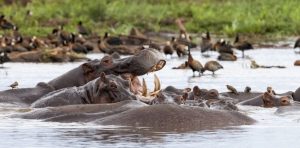Scaling Kilimanjaro: Charity Climb Guide
Preparation and Training for Kilimanjaro Charity Climbs
Climbing Mount Kilimanjaro, the tallest peak in Africa, is a challenging yet rewarding experience. For those looking to take on this iconic mountain while also giving back to the community, charity climbs provide the perfect opportunity. Organized by Sunset Africa Safari, these charity climbs not only allow participants to conquer the summit of Kilimanjaro but also raise funds for important causes.
Before embarking on a Kilimanjaro charity climb, it is essential to properly prepare both physically and mentally. Training for this expedition requires a combination of cardiovascular fitness, strength training, and endurance exercises. Regular hiking, running, and stair climbing can help build the necessary stamina for the demanding trek ahead. Additionally, acclimatization hikes at higher altitudes are recommended to prepare the body for the decreased oxygen levels at higher elevations.
Apart from physical training, mental preparation is equally important. Climbing Kilimanjaro can be mentally challenging, especially during the final push to the summit. Developing a positive attitude, mental resilience, and determination will be key to overcoming any obstacles along the way.
Essential Gear and Safety Tips for Scaling Africa’s Tallest Peak
When it comes to climbing Mount Kilimanjaro, having the right gear is crucial for a safe and successful ascent. Essential items to pack for the trek include sturdy hiking boots, moisture-wicking clothing, thermal layers, a waterproof jacket, a warm hat, gloves, sunglasses, and a headlamp. It is also important to pack plenty of snacks, water, and electrolyte tablets to stay hydrated and energized throughout the climb.
In terms of safety, it is imperative to follow the guidance of experienced guides and adhere to their instructions at all times. Sunset Africa Safari provides knowledgeable guides who are well-versed in the intricacies of climbing Kilimanjaro and ensuring the safety of all participants. It is important to listen to their advice, especially regarding pacing, hydration, and altitude sickness prevention.
Altitude sickness is a common concern when climbing Kilimanjaro, as the rapid ascent to high altitudes can lead to symptoms such as headaches, nausea, and dizziness. To mitigate the risk of altitude sickness, it is essential to hydrate properly, maintain a slow and steady pace, and acclimatize effectively. Sunset Africa Safari’s experienced guides are trained to recognize the signs of altitude sickness and provide appropriate assistance if needed.
In conclusion, scaling Kilimanjaro on a charity climb is a challenging and rewarding experience that requires thorough preparation, proper gear, and a focus on safety. By training diligently, packing essential gear, and following safety tips, participants can maximize their chances of reaching the summit and supporting a worthy cause in the process. For those interested in booking a Kilimanjaro charity climb with Sunset Africa Safari, please contact info@sunsetafricasafari.com to begin your journey to the top of Africa’s tallest peak.



